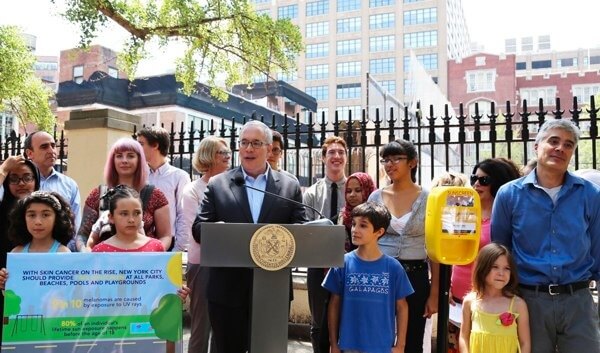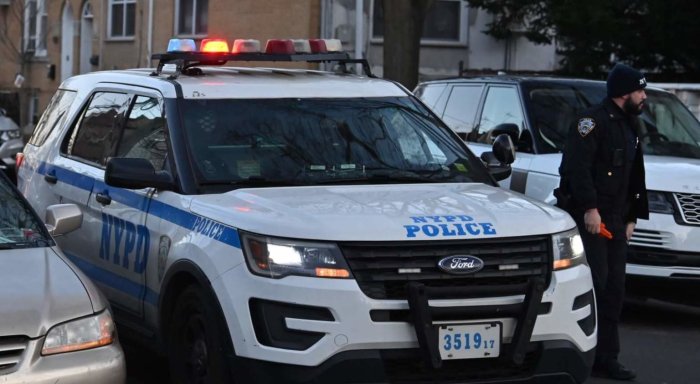By Bill Parry
Free sunscreen would be available at all city parks, beaches, pools and playgrounds under a proposal by city Comptroller Scott Stringer. As summer vacation begins for 1.1 million schoolchildren, Stringer released a report last week which outlines the high risk of skin cancer in New York City and the nation where the disease takes the lives of 10,000 Americans annually and costs $1.8 billion/
“Skin cancer is a serious public health concern, and it demands government attention,” Stringer said. “When New Yorkers head to our city’s parks, beaches, pools and playgrounds this summer, they shouldn’t return home with a sunburn and increased risk of skin cancer. Providing free sunscreen to city can protect our children and save lives, and we can do it at virtually no cost to the city.”
The comptroller’s policy brief examines two programs operating in Boston and Miami Beach, which have provided free sunscreen for the public at virtually no cost to those cities. Miami Beach signed an innovative licensing agreement in 2014 which allows a private company to produce and market Miami Beach branded sunscreen. In return, the city receives royalties from the sales, and the company operates nearly 50 free sunscreen dispensers at no cost to taxpayers.
“As the sun and fun capital of the world, Miami Beach also emphasizes sun safety year round by providing free sunscreen dispensers throughout our beaches,” Miami Beach Mayor Phillip Levine said. “We are delighted that New York City is pursuing a similar program to provide skin protection and awareness to the millions of people who enjoy their global destination each year.”
According to Stringer’s report, skin cancer is the most common type of cancer in the United States with more new cases every year than breast, prostate, lung and colon cancer combined. Between 2006 and 2011, the average number of adults treated for skin cancer annually grew nearly 40 percent.
“About 5.4 million skin cancers are diagnosed each year despite the fact that skin cancer is one of the most preventable forms of cancer,” Michael Davoli, director of the New York Metro Government Relations for the American Cancer Society Cancer Action Network, said. “We applaud the comptroller’s leadership on this issue and support this effort to encourage people to take steps to help lower their risk of this disease.”
Children are particularly sensitive to UV rays and vulnerable to sunburn and the associated increased risk of cancer. Up to 80 percent of an individual’s total lifetime sun exposure takes place before the age of 18 and, according to the U.S. Surgeon General, sunburns during childhood are a “clear risk factor” for skin cancers later in life.
“Summers in our city may be hazy, but the science here is clear. Sunscreen helps, and a free sunscreen program in New York City will allow families to safely enjoy New York’s great public spaces together,” Stringer said. “This is a common sense idea that will protect all New Yorkers, especially our children, from the sun’s harmful rays.”
Reach reporter Bill Parry by e-mail at bparr


































